How to make your motorhome safe
The right safety precautions are in Motorhome the be-all and end-all. Using our endurance test of Forster as an example, Tobias Babst, DEKRA branch manager in Hanover, explains what you should bear in mind to ensure you are safe on the road.
Gas bottles
Gas hoses and pressure regulators must be replaced every ten years. The date on the hose indicates when the last replacement took place. In addition, the bottles must be secured and closed to ensure they remain stable while driving for safety reasons. Exception: If there is a gas switching valve with a so-called crash sensor on the bottle, gas can also be used while driving.
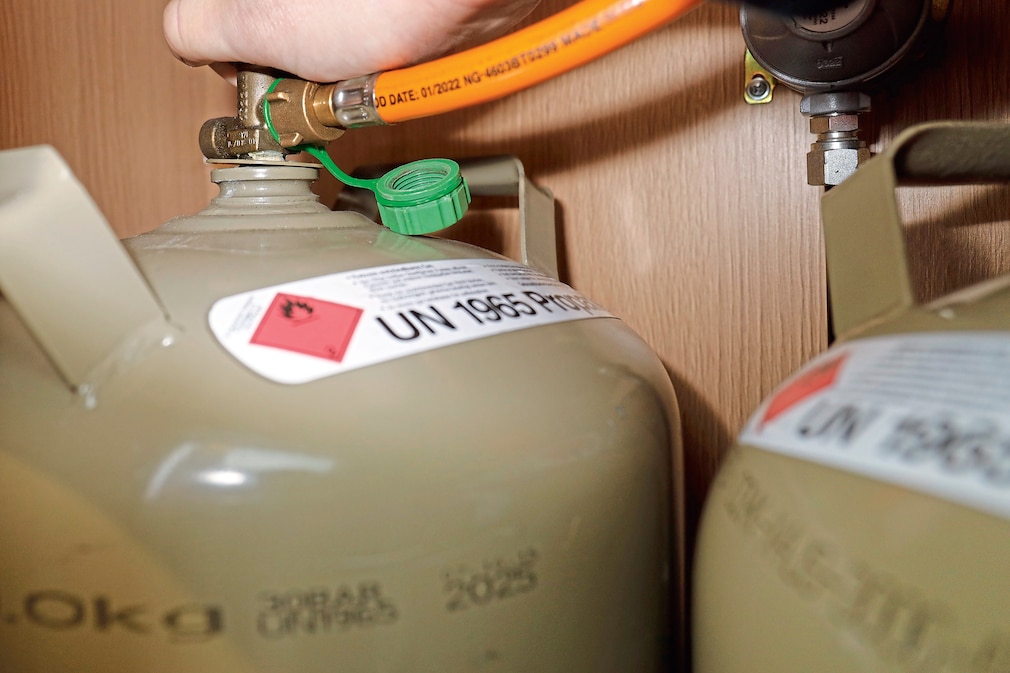
The gas bottles must always be closed while driving.
Photo: Sven Krieger / Car Whiz
ventilation
Escaping propane gas is heavier than air and sinks to the bottom. Therefore, make sure that the ventilation openings on the bottom of the gas bottle box are always clear and not dirty. There should also be no rags or similar lying on them. A maximum of two bottles may be carried in the gas box. Do not take any additional bottles with you in the rear garage. If necessary, buy more locally rather than driving around with unnecessary fire loads.
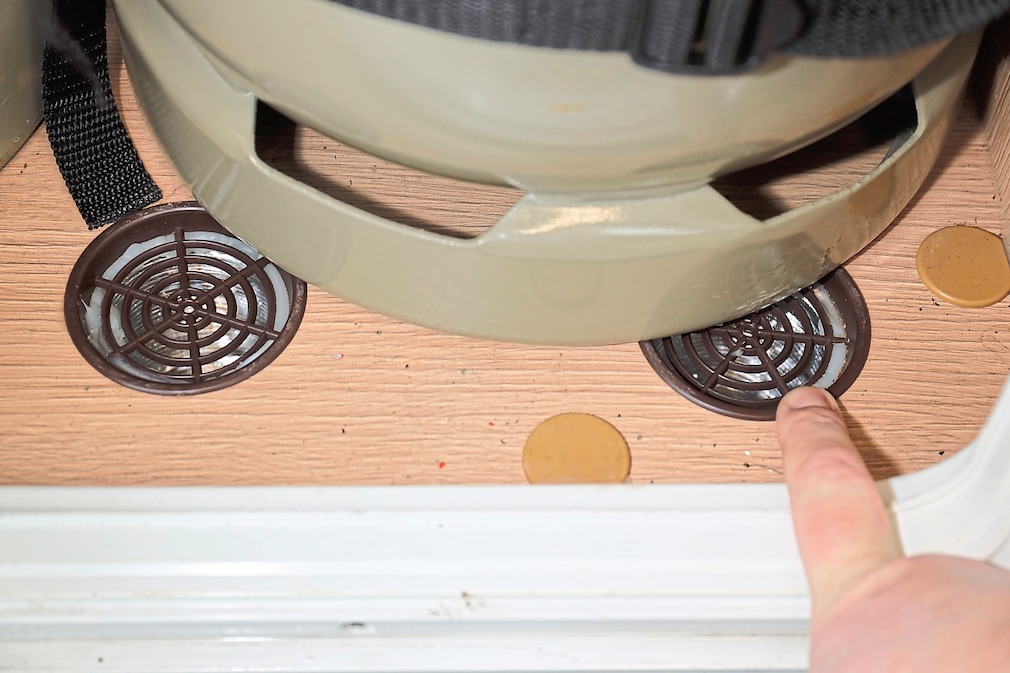
Please never cover the ventilation openings in the gas bottle box and regularly remove dust and dirt.
Photo: Sven Krieger / Car Whiz
The same applies to petrol. For safety reasons, you should not carry more than you absolutely need. Different country-specific regulations apply to the maximum quantities of hazardous substances that can be transported.
Gas supply
If you want to be on the safe side, always close the shut-off valves for the individual consumption points when you are not using the corresponding device (refrigerator, stove, heater). And: If you have the slightest suspicion that a device might be defective, turn the valves to “off”.
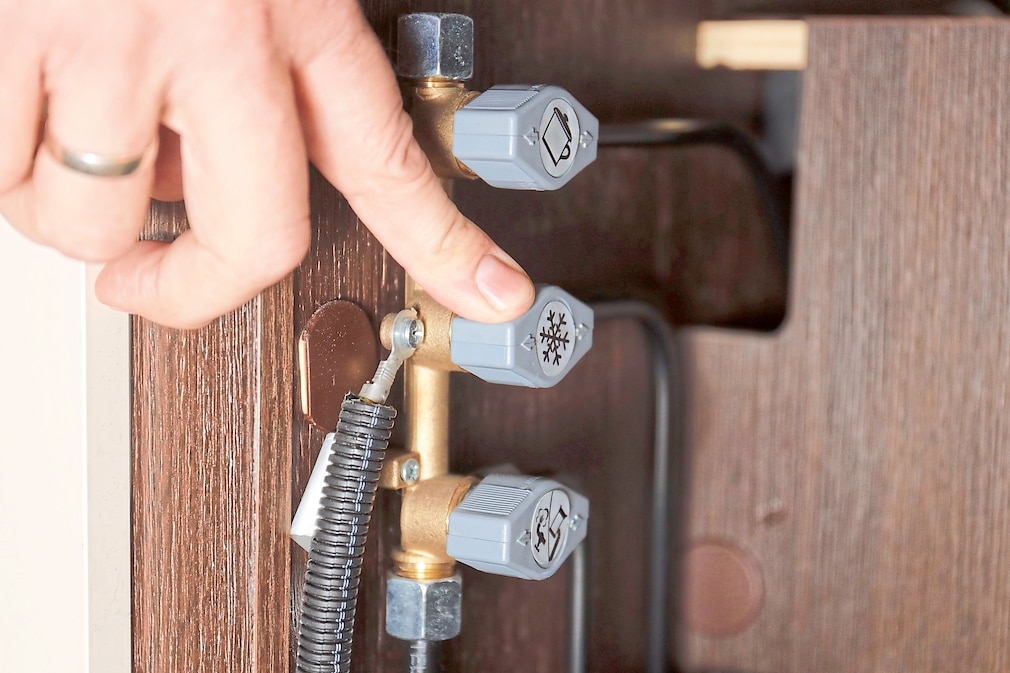
The refrigerator, stove and heater have separate shut-off valves.
Photo: Sven Krieger / Car Whiz
Exhaust opening
Make sure that the exhaust duct (the “chimney” of the vehicle’s gas system, through which the combustion gases are led to the outside) is always clear and does not freeze in winter. If combustion gases build up, there is a risk of deflagration. Exhaust gases can also get into the interior. Never seal the ventilation devices inside the motorhome, even if they make noise when driving.
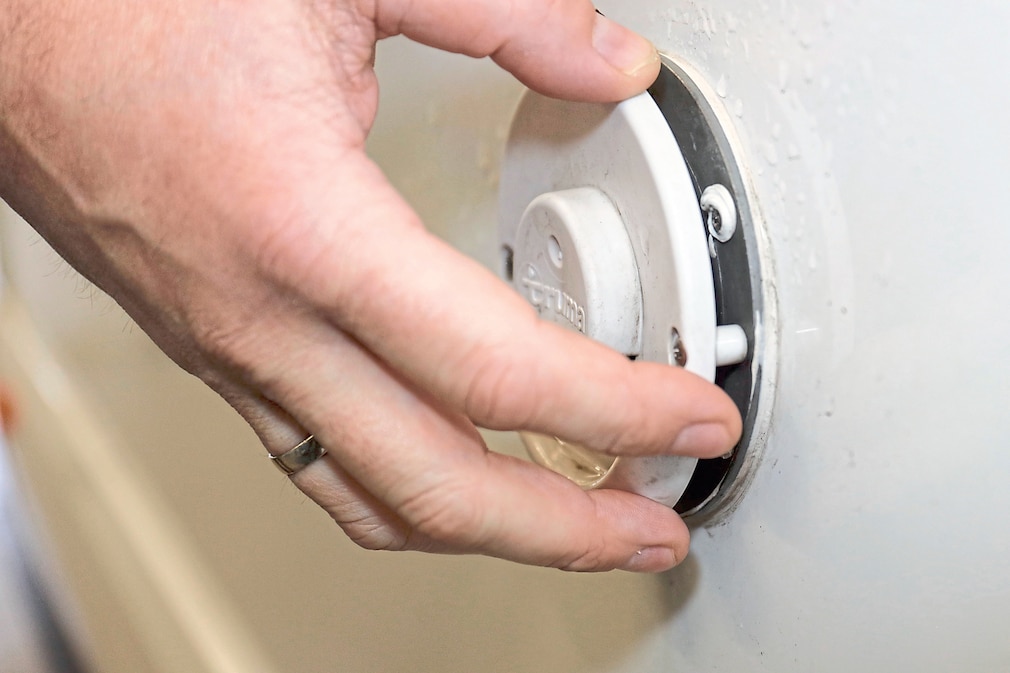
Like through a chimney, combustion gases escape to the outside here.
Photo: Sven Krieger / Car Whiz
Unwanted gas leakage
Small pen with a big impact: There is a small temperature sensor at each of the burners. It ensures that the gas supply is stopped after a certain time when the flame goes out. This means that no more gas can flow into the interior. DEKRA checks the functionality every two years as part of the G-607 gas test. However, it can’t hurt to also test yourself from time to time whether the ignition safety devices are still working.
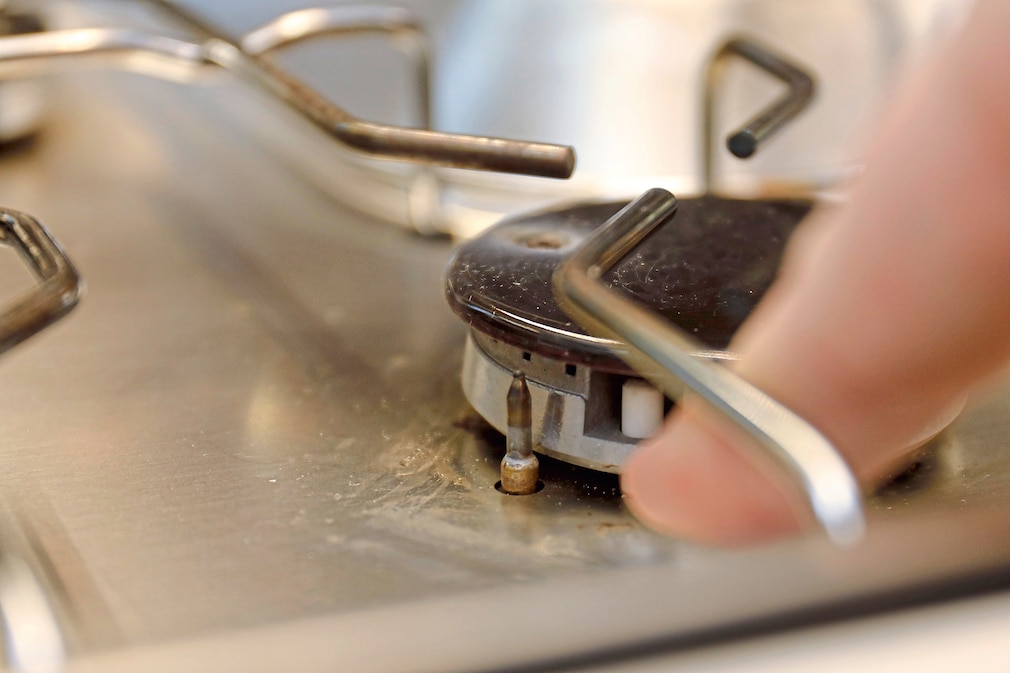
Temperature sensors are located at the bottom of the stove’s burners.
Photo: Sven Krieger / Car Whiz
Also important: When gas appliances with an open flame are in use, ventilation openings such as the roof hatch must always be open because the flame removes oxygen from the environment. In addition, open flames on the stove must never be used for heating purposes.
Fire extinguisher
You should always store a fire extinguisher in your motorhome and place it in a place that is easily accessible. There are now lightweight devices that take up little payload. Please remove newly purchased fire extinguishers immediately from the packaging so that you don’t lose any time in an emergency.
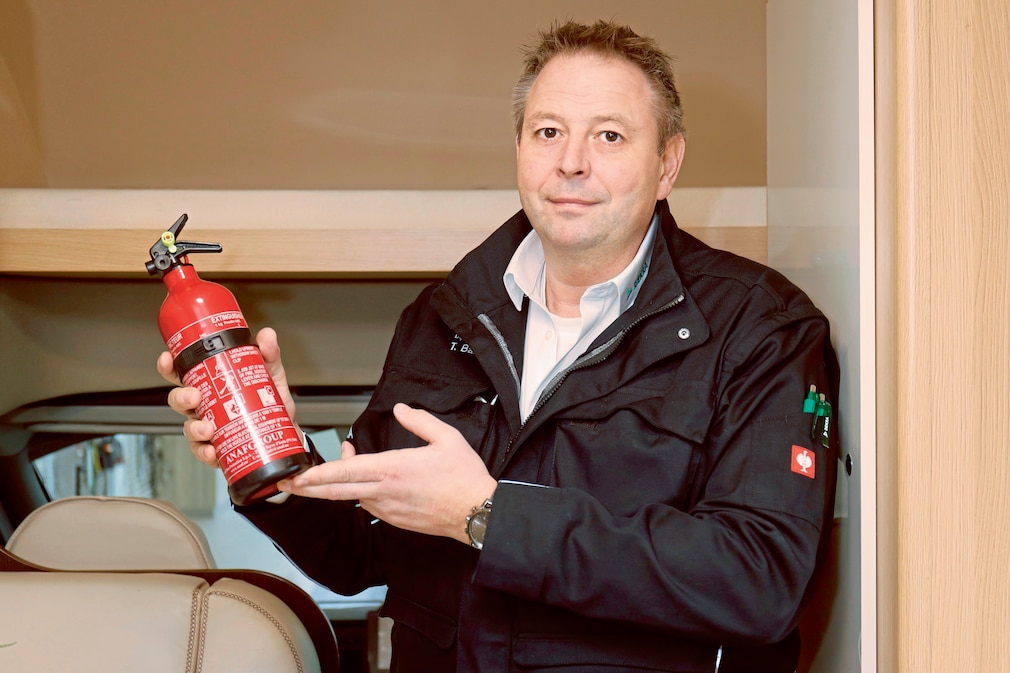
Photo: Sven Krieger / Car Whiz
Smoke and gas detectors
They are one of the most important safety devices in a motorhome. Just like in a house or apartment, smoke detectors should always be installed under the ceiling. Gas detectors are different – escaping propane and butane gas sinks to the floor, so detectors should be installed in the lower part of the room. Strong-smelling fragrances are added to the gas, which is actually odorless, so you notice a gas leak pretty quickly.
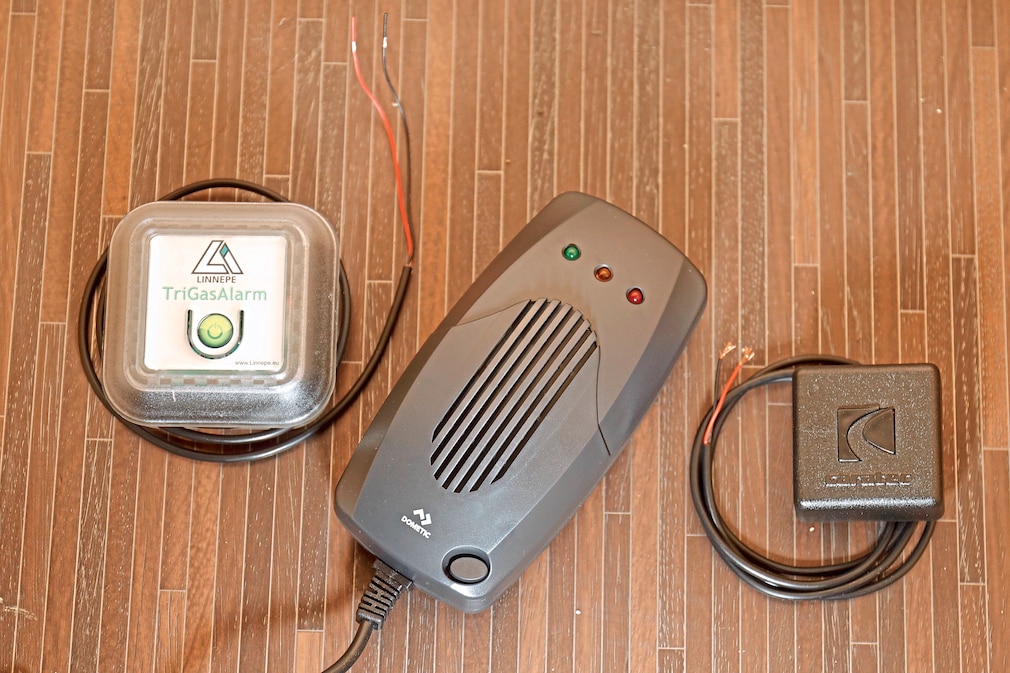
Photo: Sven Krieger / Car Whiz
However, since the sense of smell is largely “switched off” when we are asleep, it is still advisable to install gas detectors for butane and propane gas. The situation is different with carbon monoxide (CO), which is produced by combustion, is odorless and has about the same weight as the ambient air. The greatest danger here is from unnoticed smoldering fires, often caused by faulty electrical systems or short circuits in cables, for example. Additional CO detectors should therefore be installed at a height of around one and a half meters.
Electrics
The contacts in the outdoor socket must always be firm and undamaged, otherwise there is a risk of a short circuit. Also make sure that the cover flap is not loose or even torn off. If you use a cable reel, remember to always unwind it as far as possible, ideally completely.
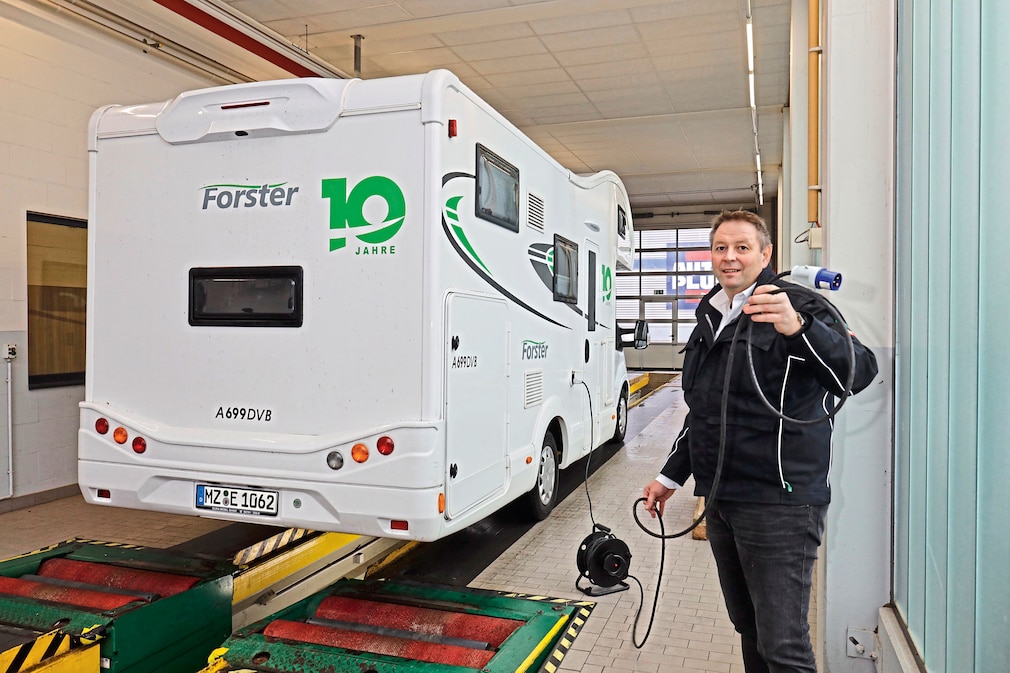
Photo: Sven Krieger / Car Whiz
Otherwise, there is a risk of overheating and the cable could burn through. The following applies to everything that concerns the electrics on and in the vehicle: Even if the temptation is great with the large number of retrofitting options available, have all the necessary work carried out by specialist companies, including the very popular installation of a photovoltaic system. This will help you avoid major problems that could also affect your insurance coverage.
Fuses
Please do not tinker with the interior fuse box yourself. For example, never bridge fuses with aluminum foil and always replace them with fuses of the same type. Otherwise there is a risk of fire after a short circuit.
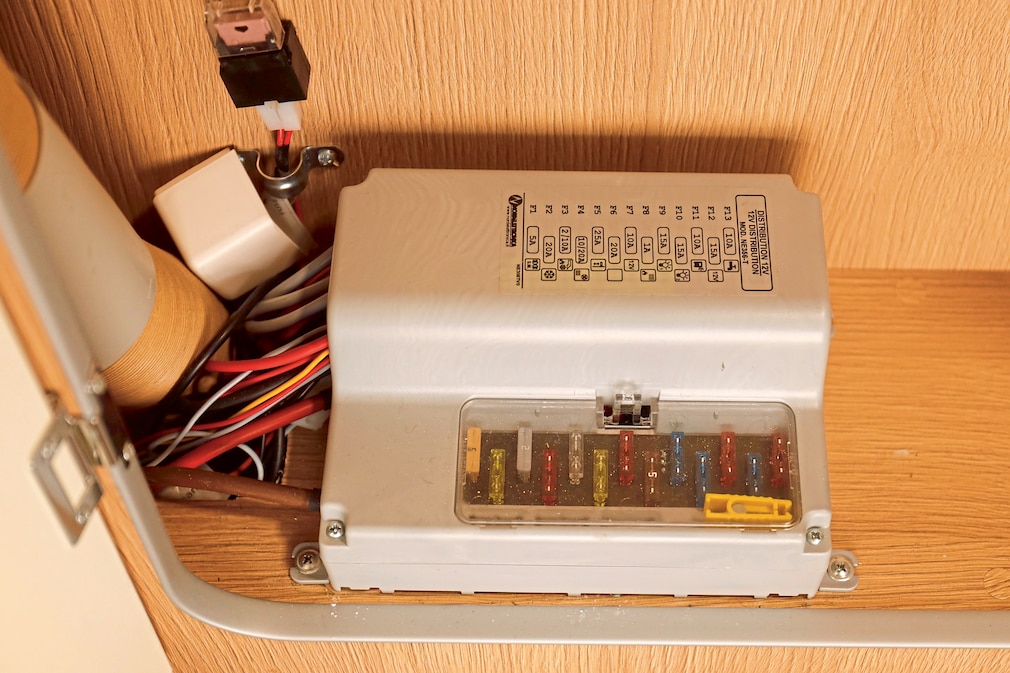
Photo: Sven Krieger / Car Whiz
That’s why smoke detectors are so important
As part of a fire drill, DEKRA specialists recently tested how quickly flames spread in a motorhome. Conclusion: It is only possible to extinguish the fire in the first few minutes. Smoke detectors are therefore indispensable.
